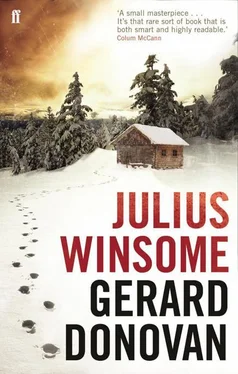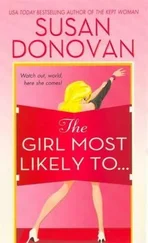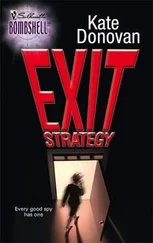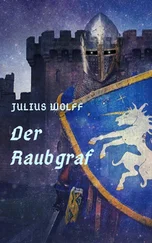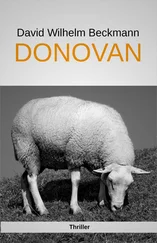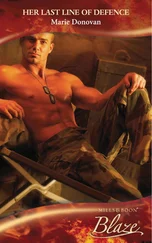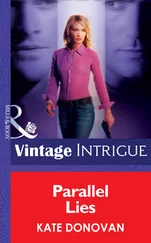The man moved out of the tree line and into the field. I took my gloves off and bunched them against the stock and leaned my cheek against them to wedge the gun into my shoulder. I closed my left eye and opened my right in the sight, found him, zeroed up half an inch for distance and made a best guess for wind, aiming off a bit to the left, and took a deep breath, letting it out and pulling the trigger, and the man in the sights stopped and spun half way around and fell on his back.
I kept an eye on the shape that was now lying in the field.
The biggest mistake a sniper makes, and usually the last, is to check on his shot, to get up and stare, to come to the window, the ledge. The novice can’t resist looking out the window or peeking above the wall to confirm a kill. Which is what the other side wants, because they have a number of rifles pointed at that window or that wall and will wait for two or three hours for the split second when the face appears up for a view, and that half second is all they need to shoot a bullet into that face. So after the report died away into the white wasteland I froze and kept the rifle parallel for a full five minutes, using my knee as support and opening my right eye occasionally to check on the shape in the snow. Most of those five minutes I sat with my eyes closed, bunched up on the stand.
The shape did not pick itself up and walk away, and from every side came nothing but silence and wind brushing snow along the tops of the trees. The least I could do was approach and ask about Hobbes, so I packed up and walked across the field, past the tree and the pole. It was a long way to the man declined in the snow. After a hundred yards I noted that he was lying by a pool, after two hundred a red pool, and after three hundred a red pool from his head. At four hundred yards from the tree where I sat and aimed the shot, I stood beside him, the drawing of Hobbes in my hand, but there would be no questions today. If this were the shooter of a dog, he brought that to his grave. He had spun out of his left boot when shot, but how I could not figure, unless he had not laced it up properly.
I pulled his license out of his wallet: he was local, one of them alright, the Fort Kent crowd spreading out after me. That was good then, to bring them farther out here, the wrong way. And everywhere now I sensed them closing in. I dragged him inside the treeline and flopped him down scooped some dead leaves and branches over him. At the edge of the woods was best, with all the brush and tangled brush. He would be okay here. I noticed a car drive by, then another, and thought it best not to stay in the area. I could depend on most people not noticing what was immediately in front of them, but you never know. There’s always one.
At the last moment I said anyway: Did you shoot my dog? Do you know I shot you? The shot caught you unawares, you declined like the others, and that’s your blood disponging.
Then I said, Did you write on that poster? Was that your hand?
He said nothing, at least the bits of him I could see through the dressing of undergrowth I put across his body, so I wasn’t entirely addressing him then. If he were the writer, he was not going to write anything again: if I put up a new poster and it wasn’t written on, I might have got my man. If he were in Fort Kent to write on a poster, then he might as easily have gone anywhere hunting, including around the cabin. It was advisable for that reason to have spread the net like this to catch him. And he came with a fancy rifle, a Browning Gold model, very expensive, very clean, polished like a boudoir mirror, one of those guns from the magazine. He must have read the advertisements too.
Possibly it was the caliber that knocked his boot off, or him out of it.
My father once sat me in front of him, a .303 cartridge held in his hand to the light, long as a finger it was, and it looked as if he had six fingers, I said.
This is not a finger, Julius, he said. It spins through the rifle bore and travels at over 2,500 feet a second. It penetrates the bones and veins and muscle like wet cucumber. Some Germans we shot in Holland at a hundred yards, we found them later cracked and broken, as a good part of the body sometimes won’t stay intact against one of these.
You mean this bullet blows people up, I said.
That is essentially what it does, he said.
* * *
On the drive back from St. Agatha I saw more police cars at one end of Fort Kent’s main street stopping drivers, asking questions, searching trunks, but only those leaving town. I parked behind the supermarket, close to three o’clock, put the weapon and other items behind the seat, and tacked the new poster on the wall in the usual place using a blue nail someone left sticking in the noticeboard, this time a 4x5 inch index card, the same size as my range card: DOG SHOT, Information to J. Winsome, P.O. Box 271, Fort Kent.
I walked to the diner, where the waitress touched my shoulder with her voice and then her smile:
And what can I get you today?
Coffee, I said as I went to the small table by the window behind the large floor plant, a palm, like the one I had in the cabin by the bookshelves, the warm books in the window sunlight.
I must discase myself, I said to her as I took my coat off. She nodded and said,
Yep, that’s the coffee right there.
When she left me, and I was sure I wasn’t being observed, I opened the carrying case and lifted the telescopic sight to my right eye and brought it to the noticeboard two blocks down, ranged the focus, and put the sight on my lap. Every couple of minutes I trained it through the café window to catch any anonymous writers. The waitress saw me and wandered over with her coffee pot and asked me who I was spying on, then laughed.
I nodded. I am testing a very old sight. The optics.
Well as long as there’s no gun under it in here, I’m fine with that.
I smiled. Always having to have their word in, some people, and I kept my smile until she went away, and then I brought the sight again to my face.
There, a man with a scarf around his head leaning to the wall with a pen or some instrument. I tried for more detail with my finger, turning the dial. There had been shots with Enflields up to a thousand yards. It was not an impossible shot at all, especially if along a street, walls on each side, a corridor to help shepherd the bullet.
Suddenly the sight went out of focus, a black cloud crossed it, pale on top, and then a tap sounded on the window, another when I pretended not to hear and didn’t move. After a few seconds I realized that freezing did not bring safety or invisibility, as the person evidently knew I was sitting at the window and was probably in fact on the other side of it. I removed the sight and blinked: Claire stood on the pavement outside, wrapped in gloves and a scarf except for her bare left hand touching the glass, the glove held in her right, as if she were leaning on the window with her fingertip. If she were an adversary and we in the open I might not have survived the next few seconds. She had stood so close I did not see her, and I determined not to forget that lesson.
Her face was shaped a pear in the scarf but enough to recognize. I saw her say my name, heard the last syllable of it, us, the sound muffled as though she stood at some distance, like a shout across a wide stretch of woodland. I sat holding the sight and made no movement. She had spied me in the act, and now she passed along the window and walked into the diner, across the floor and into the reflection of the same window up to my table, ignoring the waitress who followed her with a coffee pot.
Julius, she said.
I turned until she was real in front of me. Yes?
What’s that? She pointed to my lap.
Optics, I’m having them looked at today. Down at the gun shop.
Читать дальше
